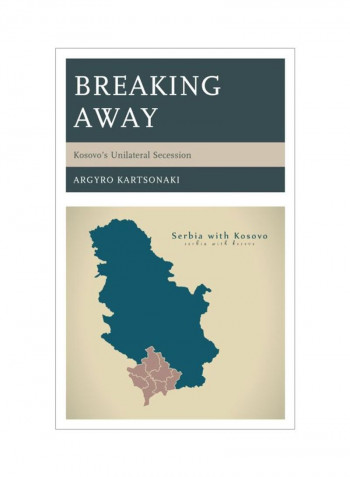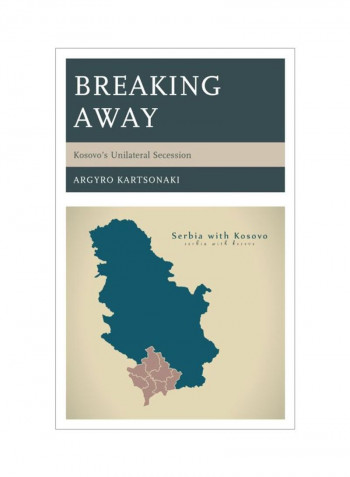Breaking Away: Kosovo's Unilateral Secession Hardcover
Recommend
Sort by
Rating
Date
Specifications
Grade
New
Author 1
Argyro Kartsonaki
Book Description
This book presents the background that led to Kosovo's success in separating from Serbia and explains the reasons for its failure to achieve uncontested statehood-both internally and externally. It sheds light to the process of Kosovo's secession starting from its first unsuccessful attempt to secede in 1991and continuing to the present day. It shows how long and at the same time how lucky its secession was: Kosovo was eventually at the right place and the right time, being geographically located in Europe and having secured the support of the US at the time of its absolute supremacy in the international affairs. However, as this supremacy declined, Kosovo's progress in international affairs declined too. Ten years after its unilateral declaration of independence, it has yet to achieve UN membership and uncontested statehood, and Kosovo also faces shortcomings in its internal function as a state. This book provides a holistic approach towards Kosovo's secession from an international relations point of view. It takes into consideration events that happened in different times and different places and shows that secession is not merely an act that takes place in one specific time and place. It is rather a process that spans over time and events at different levels of analysis shape its outcome.
ISBN-13
9781498567183
Language
English
Publisher
Lexington Books
Publication Date
25 Apr 2018
Number of Pages
166
About the Author
Argyro Kartsonaki is a research fellow at the University of Birmingham.
Editorial Review
When does separatism become statehood? Argyro Kartsonaki's masterful study of Kosovo-of conflicts, of ambitions, of concerns-is not just a benchmark for its past, present, and future. It is a thoughtful analysis that may just give us an idea of how to turn other confrontations into a productive way forward for new States. -- Scott Lucas, University of Birmingham A fascinating study of the factors that enabled Kosovo to make a success of its unilateral secession. Argyro Kartsonaki's rich multi-level analysis explores how Kosovo managed to secure external support for its independence in 2008, whereas it had failed in 1991, and how this external support has also enabled the creation of a functioning state. This book should appeal to anyone with an interest in the politics of state recognition. -- Nina Caspersen, York University




